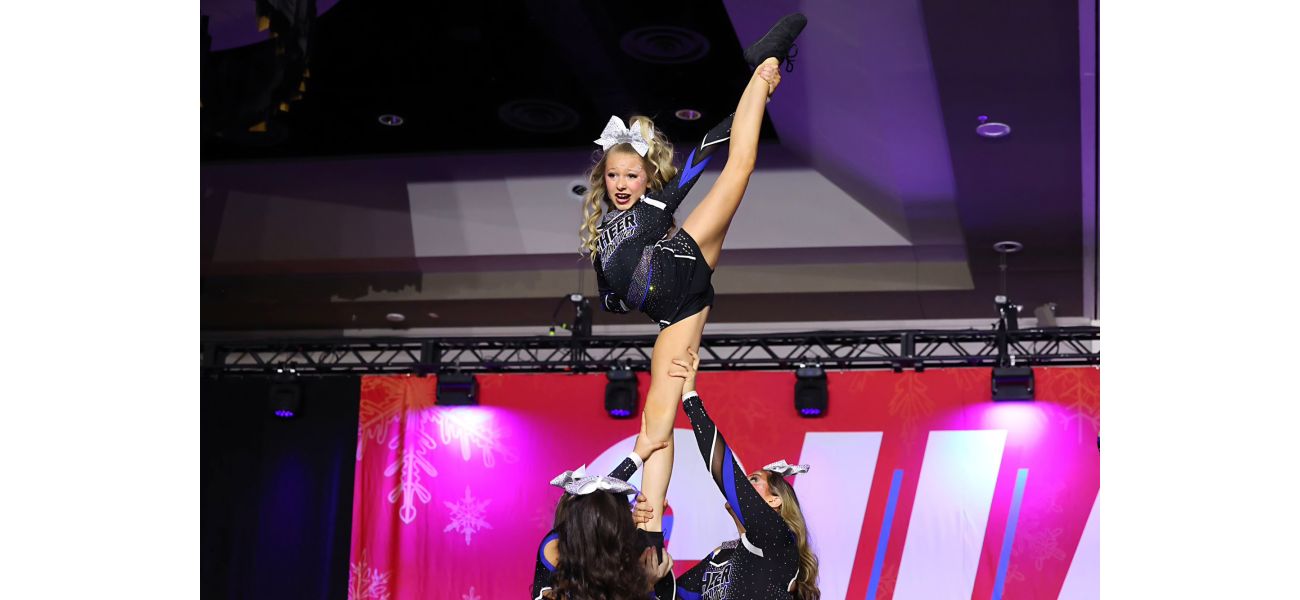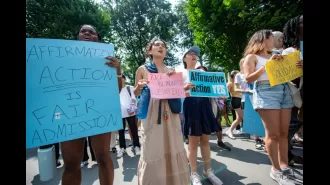Return to school and light exercise can aid children in bouncing back from concussions quickly.
Doctors and teachers urge parents to not delay sending their children back to school after suffering a concussion.
November 9th 2024.

In April, Jana Duey's sixth-grade daughter, Karter, was involved in a scary incident during cheerleading practice. Karter fell headfirst onto a gym floor mat, resulting in a concussion. As any parent would be, Duey was extremely worried about her daughter's well-being. And rightfully so. Even days after the incident, Karter was still experiencing symptoms such as headaches, dizziness, and sensitivity to light and noise.
Duey made sure Karter took the necessary time to rest and recover at home in Centennial, Colorado. After about a week and a half, Karter returned to school. However, she did so with some accommodations in place to make it easier for her to adjust back to her school routine. For example, Karter was allowed to do her schoolwork on paper instead of using a screen, and she was given extra time to get to and from her classes. If she ever had a headache, she could go to the nurse's office for some relief. Additionally, Karter began physical therapy to help her neck heal and regain her balance, which had been affected by the accident.
One of the biggest concerns for children and their parents after a concussion is when they can return to sports. Dr. Julie Wilson, one of Karter's doctors and co-director of the Concussion Program at Children's Hospital Colorado, explains that the first step in concussion recovery is to get children back to their usual daily activities as soon as they can tolerate them. This includes returning to school and participating in light exercise that does not pose a risk of further head injury. This approach is supported by the latest research.
Dr. Christina Master, a pediatrician and specialist in sports medicine and brain injuries at Children's Hospital of Philadelphia, explains that even though the brain is not a muscle, it can be thought of as one. It is important to keep the brain active and engaged during recovery, just like you would with a muscle injury. Instead of waiting for a full recovery at home, it is beneficial for students to return to school with extra support from teachers and breaks to help manage any remaining symptoms.
In August, the Colorado Department of Education updated their guidelines on concussions, debunking common myths and emphasizing the importance of returning to school and exercise in the recovery process. It is crucial to educate families and schools about these new guidelines, especially during the fall when there is an increase in concussions from sports like football and soccer. According to the 2022 National Health Interview Survey, over 2 million children in the US have been diagnosed with a concussion or brain injury at some point.
Studies in the past decade have shown that adolescents recover faster from concussions and are less likely to experience prolonged symptoms if they engage in light exercise, such as riding a stationary bike or taking a brisk walk, within two days after the injury. This timeframe also seems to be the sweet spot for returning to school, as long as the student can tolerate any remaining symptoms.
While every state has laws in place for student-athletes to return to play after a concussion, only some states, like Virginia and Illinois, have "return-to-learn" policies. Unfortunately, Colorado is not one of them. However, the state does have community-based protocols for managing concussions.
This summer, Colorado updated their protocols to include the REAP method, which stands for Remove/Reduce; Educate; Adjust/Accommodate; and Pace. These protocols aim to help families, healthcare providers, and schools support students during the first four weeks after a concussion. For example, schools can use an email system to inform teachers about a student's concussion and provide weekly updates on how to manage symptoms.
Toni Grishman, senior brain injury consultant at the Colorado Department of Education, explains that these new protocols are crucial in supporting students as they recover from a concussion. In most cases, concussion symptoms resolve within the first month. However, for those with persistent symptoms, a multidisciplinary care team may be needed, including physicians, physical therapists, and psychologists, as well as additional support from the school.
David Howell, director of the Colorado Concussion Research Laboratory at the University of Colorado Anschutz Medical Campus, is studying how children and their families cope with the impacts of concussions. Research has shown that factors such as anxiety, depression, and social relationships can impact recovery. Duey shares that the most challenging part of Karter's recovery was not being able to participate in cheer for nine weeks, including missing out on her team's final competition. It was heartbreaking for Karter, but with help from physical therapy, her balance returned, and she is now back to flying with her cheer team and preparing for competitions.
It is essential to recognize and act quickly when it comes to concussions, but unfortunately, many students may slip through the cracks and go undiagnosed. This may be due to a lack of education, barriers to medical care, or reluctance from parents to inform schools about a concussion for fear of their child being excluded from activities. While it can be challenging to get schools to follow concussion guidelines, it is crucial to continue educating them and providing training to school personnel. Having athletic trainers on the sidelines and educating athletes about concussion symptoms can also help prevent undiagnosed concussions.
Concussions are not limited to the athletic field. Adventure sports like parkour, slacklining, motocross, rodeo, skiing, and snowboarding also pose a risk for concussions. According to Wilson and Grishman, cheerleading is also a sport with a high rate of concussions.
Luckily, Karter has recovered from her concussion and is back to doing what she loves. But for many other children and their families, concussions can be a scary and challenging experience. It is crucial to continue educating schools and families about the importance of recognizing and properly managing concussions to ensure a safe and speedy recovery.
Duey made sure Karter took the necessary time to rest and recover at home in Centennial, Colorado. After about a week and a half, Karter returned to school. However, she did so with some accommodations in place to make it easier for her to adjust back to her school routine. For example, Karter was allowed to do her schoolwork on paper instead of using a screen, and she was given extra time to get to and from her classes. If she ever had a headache, she could go to the nurse's office for some relief. Additionally, Karter began physical therapy to help her neck heal and regain her balance, which had been affected by the accident.
One of the biggest concerns for children and their parents after a concussion is when they can return to sports. Dr. Julie Wilson, one of Karter's doctors and co-director of the Concussion Program at Children's Hospital Colorado, explains that the first step in concussion recovery is to get children back to their usual daily activities as soon as they can tolerate them. This includes returning to school and participating in light exercise that does not pose a risk of further head injury. This approach is supported by the latest research.
Dr. Christina Master, a pediatrician and specialist in sports medicine and brain injuries at Children's Hospital of Philadelphia, explains that even though the brain is not a muscle, it can be thought of as one. It is important to keep the brain active and engaged during recovery, just like you would with a muscle injury. Instead of waiting for a full recovery at home, it is beneficial for students to return to school with extra support from teachers and breaks to help manage any remaining symptoms.
In August, the Colorado Department of Education updated their guidelines on concussions, debunking common myths and emphasizing the importance of returning to school and exercise in the recovery process. It is crucial to educate families and schools about these new guidelines, especially during the fall when there is an increase in concussions from sports like football and soccer. According to the 2022 National Health Interview Survey, over 2 million children in the US have been diagnosed with a concussion or brain injury at some point.
Studies in the past decade have shown that adolescents recover faster from concussions and are less likely to experience prolonged symptoms if they engage in light exercise, such as riding a stationary bike or taking a brisk walk, within two days after the injury. This timeframe also seems to be the sweet spot for returning to school, as long as the student can tolerate any remaining symptoms.
While every state has laws in place for student-athletes to return to play after a concussion, only some states, like Virginia and Illinois, have "return-to-learn" policies. Unfortunately, Colorado is not one of them. However, the state does have community-based protocols for managing concussions.
This summer, Colorado updated their protocols to include the REAP method, which stands for Remove/Reduce; Educate; Adjust/Accommodate; and Pace. These protocols aim to help families, healthcare providers, and schools support students during the first four weeks after a concussion. For example, schools can use an email system to inform teachers about a student's concussion and provide weekly updates on how to manage symptoms.
Toni Grishman, senior brain injury consultant at the Colorado Department of Education, explains that these new protocols are crucial in supporting students as they recover from a concussion. In most cases, concussion symptoms resolve within the first month. However, for those with persistent symptoms, a multidisciplinary care team may be needed, including physicians, physical therapists, and psychologists, as well as additional support from the school.
David Howell, director of the Colorado Concussion Research Laboratory at the University of Colorado Anschutz Medical Campus, is studying how children and their families cope with the impacts of concussions. Research has shown that factors such as anxiety, depression, and social relationships can impact recovery. Duey shares that the most challenging part of Karter's recovery was not being able to participate in cheer for nine weeks, including missing out on her team's final competition. It was heartbreaking for Karter, but with help from physical therapy, her balance returned, and she is now back to flying with her cheer team and preparing for competitions.
It is essential to recognize and act quickly when it comes to concussions, but unfortunately, many students may slip through the cracks and go undiagnosed. This may be due to a lack of education, barriers to medical care, or reluctance from parents to inform schools about a concussion for fear of their child being excluded from activities. While it can be challenging to get schools to follow concussion guidelines, it is crucial to continue educating them and providing training to school personnel. Having athletic trainers on the sidelines and educating athletes about concussion symptoms can also help prevent undiagnosed concussions.
Concussions are not limited to the athletic field. Adventure sports like parkour, slacklining, motocross, rodeo, skiing, and snowboarding also pose a risk for concussions. According to Wilson and Grishman, cheerleading is also a sport with a high rate of concussions.
Luckily, Karter has recovered from her concussion and is back to doing what she loves. But for many other children and their families, concussions can be a scary and challenging experience. It is crucial to continue educating schools and families about the importance of recognizing and properly managing concussions to ensure a safe and speedy recovery.
[This article has been trending online recently and has been generated with AI. Your feed is customized.]
[Generative AI is experimental.]
0
0
Submit Comment





